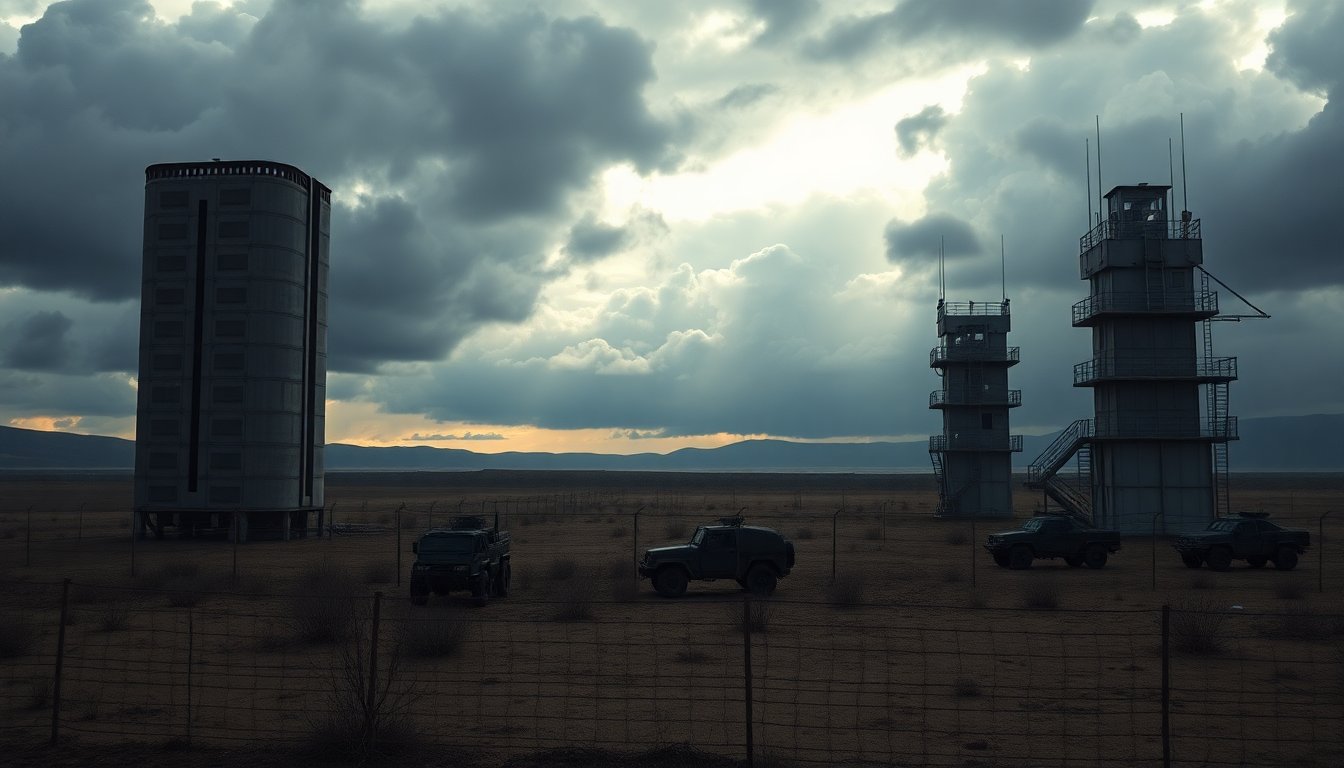Table of Contents
The ongoing geopolitical rivalry between Russia and the United States has intensified as both nations engage in provocative actions regarding their nuclear arsenals. Following an announcement from President Donald Trump, the U.S. military plans to resume nuclear weapon testing for the first time in over three decades. This decision coincides with Russia’s recent trials of advanced nuclear-powered weaponry, indicating a renewed arms race between these two global superpowers.
As tensions escalate, Kremlin spokesperson Dmitry Peskov expressed unease regarding Trump’s assertions. He suggested that the U.S. president had been misinformed about Russia’s recent military tests, specifically those involving the Burevestnik cruise missile and the Poseidon super-torpedo. Peskov emphasized that these activities should not be characterized as nuclear tests and warned that Russia would respond if any nation disregarded the existing global moratorium on such actions.
Russia’s nuclear advancements and their implications
Experts indicate that Russia’s development of the Burevestnik and Poseidon systems is motivated more by political considerations than immediate military needs. Pavel Podvig, a prominent researcher at the United Nations Institute for Disarmament Research, draws parallels between the current Russian leadership and that of Nikita Khrushchev, noting a shared desire to promote unique and unmatched technologies. Podvig argues that these weapons are part of long-term strategies rather than direct reactions to specific events, such as the U.S. supplying Tomahawk missiles to Ukraine.
The political signaling of new weaponry
Podvig likens Russia’s pursuit of advanced systems to the U.S. Golden Dome missile defense project, suggesting that both serve more as political statements than practical military assets. Historically, Russia has raised concerns about U.S. missile defense strategies, mirroring the apprehensions expressed by the U.S. regarding Russian advancements. This exchange of unfriendly signals contributes to a complex web of military posturing.
The broader context of military engagement
Amid these developments, reports indicate that Russia is tightening its control over the strategic city of Pokrovsk in Ukraine. Moscow claims to have encircled Ukrainian forces, although Ukrainian military officials contest these assertions. President Putin has proposed a temporary ceasefire to allow foreign journalists to report from the area, a move aimed at shaping international perceptions.
Sanctions and economic repercussions
The economic landscape is shifting, exemplified by Lukoil’s decision to sell a significant portion of its international assets to the Swiss commodity trader Gunvor following strict U.S. sanctions. Gunvor, with historical ties to Russia, has emerged as a leading trader in Russian oil. This transaction underscores the ripple effects of sanctions on Russian entities and their global partnerships.
Additionally, recent sanctions have reignited discussions in Germany about the potential nationalization of Rosneft’s local assets. Despite the complexities involved, including compensation concerns, the German government is grappling with the implications of U.S. sanctions on its energy landscape.
International reactions and future implications
The international community is closely monitoring Russia’s military advancements, particularly the Burevestnik missile, which is reported to have an unlimited range and the ability to evade existing missile defenses. The missile, which utilizes a nuclear reactor for propulsion, poses significant safety risks and has drawn skepticism from Western experts who question its practicality and contribution to Russia’s military capabilities.
Concerns over the Burevestnik’s safety were highlighted by a tragic incident in, where an explosion during testing resulted in fatalities and increased radiation levels. This incident underscores the inherent risks associated with nuclear-powered weaponry, which both the U.S. and Soviet Union explored during the Cold War but ultimately abandoned due to substantial safety and operational concerns.
As military posturing intensifies, the potential for miscalculations and misunderstandings between these nuclear powers increases. The Kremlin insists that its actions are defensive and rooted in national interests, while critics argue that such developments only exacerbate global tensions.
As tensions escalate, Kremlin spokesperson Dmitry Peskov expressed unease regarding Trump’s assertions. He suggested that the U.S. president had been misinformed about Russia’s recent military tests, specifically those involving the Burevestnik cruise missile and the Poseidon super-torpedo. Peskov emphasized that these activities should not be characterized as nuclear tests and warned that Russia would respond if any nation disregarded the existing global moratorium on such actions.0


